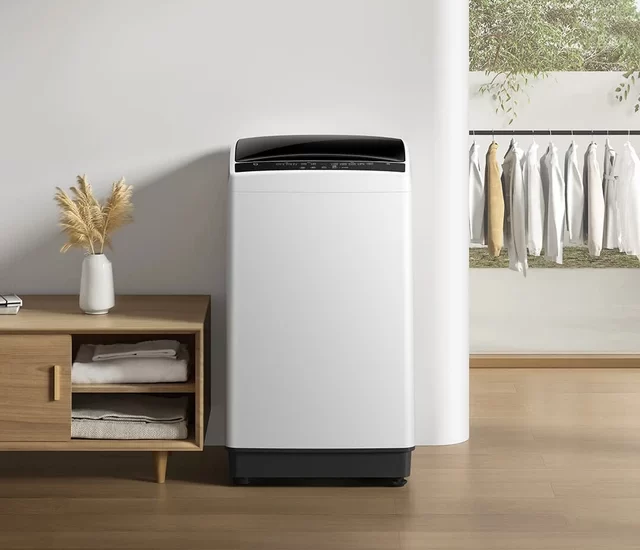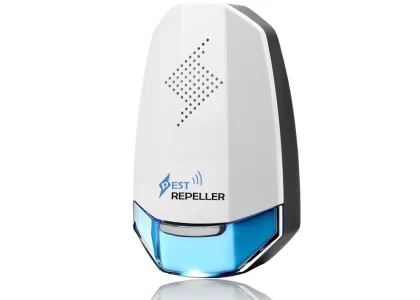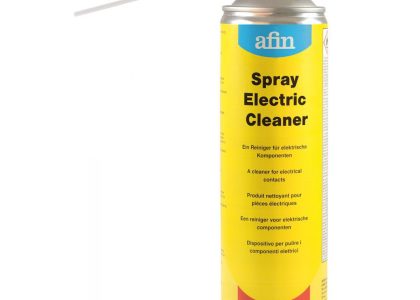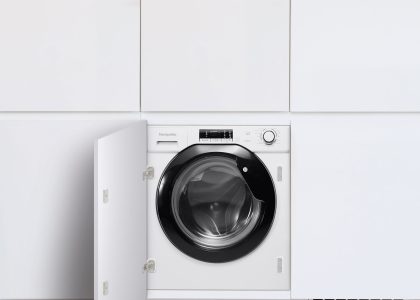 Introduction:
Introduction:
A top-loading washing machine that smells like rotten eggs can be an unpleasant and frustrating problem. The unpleasant odor is typically caused by a buildup of bacteria, mold, or mildew inside the machine. In this comprehensive guide, we will explore the reasons behind this foul smell and provide effective tips to eliminate it. By following these simple steps, you can restore freshness to your top-loading washing machine and enjoy clean and odor-free laundry.
 Common types of washing machines:
Common types of washing machines:
When it comes to washing machines, there are several categories or classifications based on their features and functionalities. Here are the common types of washing machines:
Top-loading Washing Machine:
This type of washing machine features a vertical drum and a lid on the top where clothes are loaded. Top-loading machines are generally more affordable and convenient for adding clothes midway through a wash cycle. They are available in both fully automatic and semi-automatic variants.
Front-loading Washing Machine:
Front-loading machines have a horizontal drum and a door at the front for loading clothes. They use a tumbling action to clean clothes and are known for their energy efficiency and water-saving features. Front-loading machines tend to provide better cleaning performance and are suitable for larger loads. They are available in fully automatic models.
Semi-automatic Washing Machine:
Semi-automatic washing machines are typically top-loading machines with separate wash and spin tubs. Users need to manually transfer clothes from the wash tub to the spin tub and perform water filling and draining tasks. These machines require more user intervention but are often more affordable and suitable for areas with water scarcity.
Fully Automatic Washing Machine:
Fully automatic washing machines can be either top-loading or front-loading. They come with built-in sensors and automatic programs that handle the entire washing process, from water filling to drying. Users only need to select the program and the machine takes care of the rest. Fully automatic machines provide ease of use and convenience.
Compact or Portable Washing Machine:
Compact or portable washing machines are smaller in size and designed for small spaces or for those who require a portable option. These machines can be top-loading or front-loading and often have lower capacities. They are convenient for use in apartments, RVs, or small households with limited space.
High-efficiency (HE) Washing Machine:
High-efficiency washing machines are designed to use less water and energy compared to traditional models. They can be both top-loading and front-loading machines. HE machines often feature advanced technologies, such as sensors and specialized wash cycles, to optimize water and detergent usage and provide efficient cleaning.
These different types of washing machines offer various features, capacities, and technologies. Factors such as available space, budget, washing needs, and energy efficiency should be considered to select the most suitable washing machine for your requirements.
 Some potential risks associated with a rotten egg smell in a top-loading washing machine:
Some potential risks associated with a rotten egg smell in a top-loading washing machine:
If a top-loading washing machine smells like rotten eggs, it can indicate a potential issue with the machine. The smell is often caused by a buildup of bacteria or sulfur in the machine or in the plumbing connected to it. While this smell itself may not be harmful, it can indicate underlying problems that should be addressed to prevent further issues. Here are some potential risks associated with a rotten egg smell in a top-loading washing machine:
Bacterial Growth:
The foul odor is often a result of bacteria growth in the machine. This bacteria can contaminate the clothes being washed, potentially causing them to smell or harbor harmful bacteria. It is important to address the issue promptly to prevent bacterial contamination of laundry.
Poor Hygiene:
A persistent rotten egg smell can indicate poor hygiene and cleanliness in the washing machine. This can be a breeding ground for various types of bacteria and other microorganisms. Poor hygiene can lead to the spread of germs and potential health risks if not properly addressed.
Plumbing Problems:
If the odor is originating from the water supply or plumbing connected to the washing machine, it may indicate a problem with the water source or the plumbing system. This may require attention from a plumber to investigate and resolve the issue.
It is important to identify the source of the odor and take appropriate measures to eliminate the smell and prevent further issues. Regular cleaning and maintenance of the washing machine, including cleaning the drum, pipes, and filters, can help prevent the buildup of bacteria or sulfur compounds that cause the rotten egg smell. If the issue persists or if you have concerns about the quality of your water supply, it is advisable to consult a professional or contact the manufacturer for further assistance.
Causes of the Rotten Egg Smell
Bacteria and Germs:
Damp and warm conditions inside the washing machine provide an ideal environment for the growth of bacteria and germs.
These microorganisms can produce sulfur compounds that result in the unpleasant rotten egg smell.
Mold and Mildew:
Moisture and organic matter, such as lint or detergent residue, can accumulate in the washing machine drum, promoting mold and mildew growth.
The byproducts of mold and mildew metabolism can also contribute to the foul odor.
Hard Water:
Hard water, which contains high levels of minerals like sulfur and magnesium, can result in a sulfurous odor.
The reaction between detergent and hard water minerals can worsen the rotten egg smell in the washing machine.
 Eliminating the Odor
Eliminating the Odor
Hot Water and Vinegar Solution:
Run an empty cycle with hot water and add two cups of white vinegar to the drum.
Allow the solution to agitate for several minutes, then pause the cycle and let it sit for an hour to eliminate odor-causing bacteria.
Baking Soda and Vinegar Treatment:
Sprinkle one cup of baking soda into the drum, then add two cups of vinegar.
Run a hot water cycle, allowing the solution to mix and cleanse the machine thoroughly.
Bleach Treatment:
Use caution with bleach, as it can damage certain types of fabrics.
Add half a cup of bleach to an empty hot water cycle, allowing it to circulate through the machine to kill bacteria and eliminate odors.
Preventing Odor Recurrence
Regular Cleaning Routine:
Incorporate a monthly cleaning routine to prevent the buildup of bacteria, mold, and mildew.
Use the vinegar or baking soda treatments mentioned earlier to keep the machine fresh.
Proper Ventilation:
After each use, leave the lid or door of the washing machine open to allow air circulation and prevent moisture buildup.
Reduced Detergent Usage:
Use the appropriate amount of detergent according to the manufacturer’s recommendations.
Excess detergent can create a breeding ground for bacteria and contribute to odor problems.
Professional Assistance
Allowing Professional Cleaning:
If the odor persists despite home remedies, consider having your top-loading washing machine professionally cleaned.
Professional cleanings can safely eliminate stubborn odors and restore the machine’s freshness.
 Conclusion:
Conclusion:
A top-loading washing machine that smells like rotten eggs can be easily remedied with simple cleaning solutions and preventive measures. By identifying the causes of the foul odor, such as bacteria, mold, mildew, or hard water minerals, you can effectively eliminate the problem. Regular cleaning routines, hot water and vinegar solutions, baking soda treatments, and proper ventilation all play key roles in preventing odor recurrence. If the odor persists, seeking professional assistance can provide a thorough solution. By following these tips, you can restore freshness to your top-loading washing machine, ensuring clean and odor-free laundry with every use.





